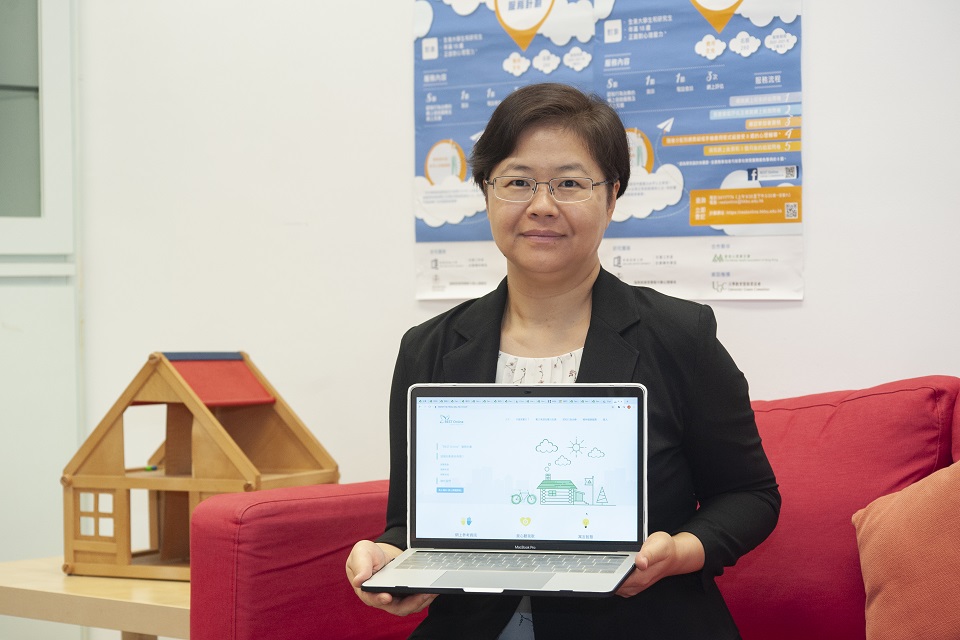Discover HKBU
Internet-based Cognitive Behavioural Therapy:
A transformative approach to mental health
31 Jul 2024


While the COVID-19 pandemic has subsided, it has put the world mental health situation in the spotlight. With rates of depression and anxiety rising, countless individuals are struggling to access the support and treatment they need. Amidst this sombre landscape, a digital transformation in mental healthcare is offering new hope.
An internet-based Cognitive Behavioural Therapy (iCBT) programme developed by a research team led by Dr Pan Jiayan, Associate Professor of the Department of Social Work, has demonstrated remarkable efficacy in improving mental health of Hong Kong university students. The project was conducted in collaboration with the Department of Computer Science and the Mental Health Association of Hong Kong.
Cognitive Behavioural Therapy (CBT) has long been hailed as a highly effective first-line psychological treatment, particularly for depression and anxiety. In recent years, the advent of online platforms has made CBT even more accessible and convenient for individuals seeking support.
“CBT typically follows a structured format with a shorter duration and better effects compared to other therapies, which makes it more accessible, acceptable and cost-effective for clients,” explains Dr Pan.
The enduring effects of iCBT
Named “REST Online”, the 10-week guided iCBT programme is a goal-oriented psychotherapy that helps people cope with life challenges by adjusting their patterns of thinking or behaviour. It comprises eight online modules, featuring briefing and debriefing of CBT skills, case demonstration videos, online assignment and assessment. Each participant is paired with a therapist who conducts two face-to-face or online counselling sessions as well as gives feedback on participants’ assignment. The results show a significant alleviation of psychological distress, depressive and anxiety symptoms as well as negative thoughts and emotions, and a notable increase in positive thoughts and emotions for participants who completed the programme. Above all, the positive effects of the programme were sustained at the three-month follow-up assessment.
“These findings are extremely encouraging, because they show that iCBT isn’t just a short-term fix; it can produce a lasting change in people's mental well-being,” notes Dr Pan.
On her own professional journey, Dr Pan became interested in cognitive therapy when she took a CBT course in her Master of Social Science in Social Work Programme. Upon graduation, she furthered her studies with more advanced professional training courses organised by Institute of Cognitive Therapy in Hong Kong. Since then, she has been using CBT to work with Chinese clients in her research projects for 10 years.
“For the past five years, I’ve been leveraging innovative technology to develop iCBT and virtual reality exposure therapy (VRET) in my work with Hong Kong university students and adults with symptoms of depression and social anxiety, to help them cope with their mental health issues,” Dr Pan says.
For students grappling with the challenges of higher education, or anyone struggling with depression or anxiety, the advent of iCBT couldn't have come soon enough. By harnessing the power of technology, programmes like REST Online are proving that life-changing psychological support can be delivered remotely, on-demand, and at scale - a breakthrough that is poised to transform the landscape of mental healthcare worldwide.
Dr Pan’s next steps will be to contact the counselling service teams in Hong Kong universities to explore the possibilities of integrating the REST Online programme in their current services.